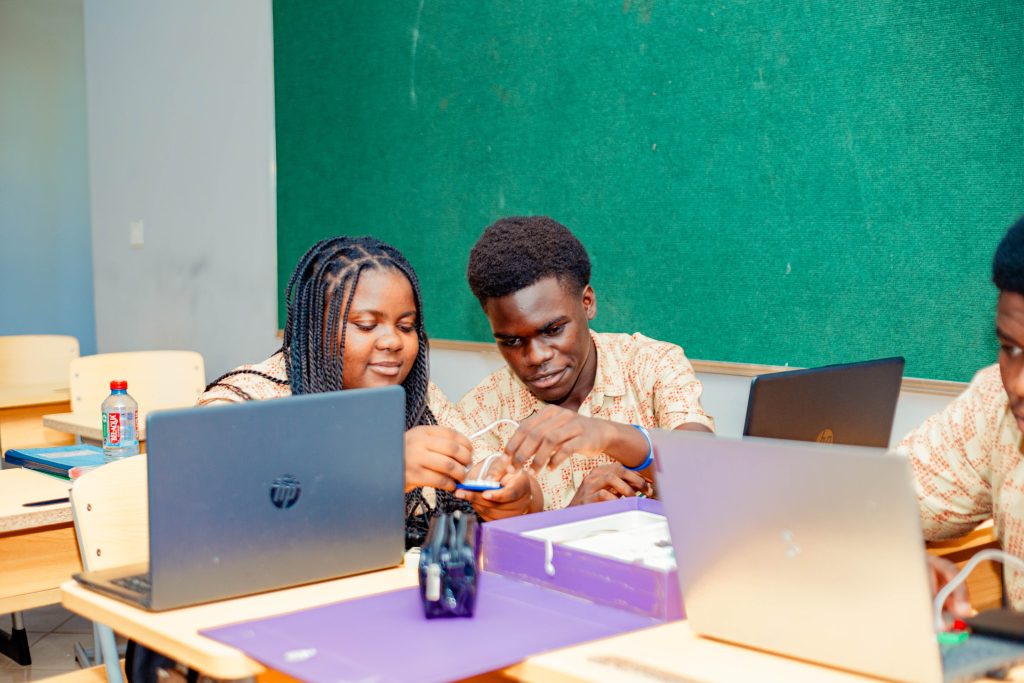- A well-designed study space minimizes distractions and signals to the brain that it is time to focus.
- Proper lighting, a comfortable chair, and an organized desk can directly improve concentration and reduce fatigue.
- Limiting digital distractions, such as social media and notifications, is crucial for deep, focused work.
- The most effective study environments are consistent and personalized to a student’s individual learning needs.
More Than Just a Desk
We all know the feeling of trying to study but getting easily distracted. The environment around us has a profound impact on our ability to learn and retain information. A productive study space is more than just a place to put your books; it’s a carefully designed area that supports focus and makes learning more efficient. This article will provide research-backed, practical strategies for students and their families to create an ideal study environment at home or school. By taking control of your space, you can take control of your learning.
The Elements of a Great Study Space
Creating a productive study environment involves addressing several key factors that influence focus and concentration.

1. The Right Location
Choose a dedicated spot that is used exclusively for studying. This could be a corner of your bedroom, a desk in the living room, or a quiet spot in the library. When your brain consistently associates a specific place with focused work, it becomes easier to get into a productive mindset as soon as you sit down. Avoid studying in bed or on the couch, as these locations are often linked to relaxation and sleep.
2. Physical Comfort and Ergonomics
An uncomfortable study space can quickly lead to distraction and fatigue.
- Seating: Use a chair that provides good back support. Sitting in a proper position improves posture and reduces physical discomfort, allowing for longer, more focused study sessions.
- Desk Height: Make sure your desk is at a comfortable height so you don’t have to hunch over. Your elbows should be at a 90-degree angle when typing or writing.
- Lighting: Good lighting is essential to prevent eye strain. Use a combination of overhead lights and a desk lamp to eliminate shadows and ensure your workspace is well-lit.
3. Minimize Distractions
Distractions are the biggest enemy of productivity. The goal is to eliminate as many as possible before they become an issue.
- Digital Distractions: Turn off notifications on your phone, tablet, and computer. Use website-blocking apps to temporarily prevent access to social media or other distracting sites. Put your phone in another room if you need to.
- Visual Clutter: Keep your desk and surrounding area tidy. A clean workspace helps reduce mental clutter and makes it easier to concentrate on the task at hand.
- Noise: Some people prefer complete silence, while others work well with background noise. Experiment with white noise, nature sounds, or instrumental music to find what works best for you.
4. Organize Your Materials
Having a clear organizational system saves time and reduces stress.
- Everything in Its Place: Designate a specific spot for all your school supplies. Use folders for different subjects, and keep pens, highlighters, and paper within easy reach.
- Use a Planner or Calendar: Keep track of assignments, deadlines, and study schedules. This helps you stay on top of your work and reduces the feeling of being overwhelmed.
Final Thoughts
Creating and maintaining a productive study environment is a direct act of self-discipline. It requires a conscious effort to make good choices, like putting away your phone or tidying your desk, even when you don’t feel like it. This discipline is the ultimate secret to academic success. By taking control of their surroundings, students are not just setting themselves up for better grades; they are building the habits and focus needed to succeed in any challenge they face.
Frequently Asked Questions (FAQs)
Q: Is it better to study alone or with friends?
A: Both can be effective. Studying alone is best for deep, focused work, while studying with friends is great for discussion, reviewing material, and staying motivated. The key is to set clear goals and avoid getting sidetracked.
Q: Can I use my bed as a study spot?
A: It is not recommended. Your brain associates your bed with sleep and relaxation. Trying to study there can make it difficult to focus, and it can also interfere with your sleep schedule.
Q: Should I listen to music while studying?
A: This depends on the person and the task. For some, instrumental music or ambient sounds can improve concentration. For others, music with lyrics can be a major distraction. Experiment to see what works for you.
Q: How can I help my child create a productive study space?
A: Involve them in the process. Ask them what they need to feel comfortable and focused. Help them set up a designated area and work with them to keep it organized. Your support is key.
